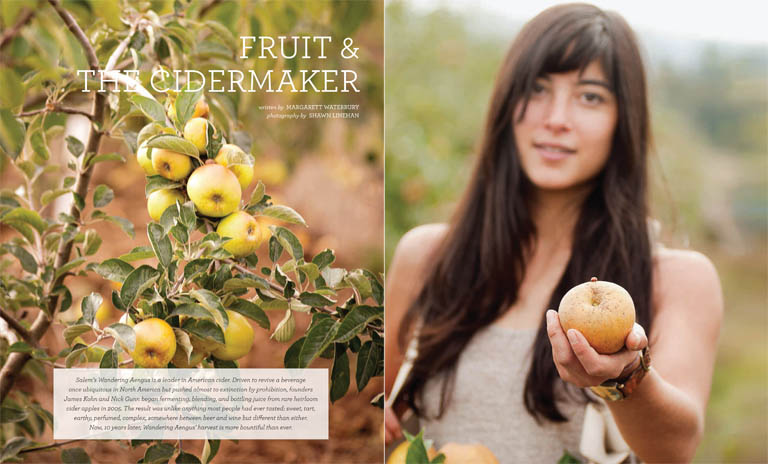Five years ago, if you asked for a cider at a restaurant, you’d probably end up with an apple juice. Today, if you’re in Oregon, you might be handed a separate cider list. Portland now leads the nation in per-capita cider consumption, and the Northwest is home to more than 70 craft cideries. Our abundant orchards (Washington is the top producer of apples in the nation), robust beverage industries, and population of adventurous drinkers have created the perfect landscape for a cider renaissance, and the rest of the country is now following the Northwest’s lead.
It’s easiest to describe craft cider by what it’s not. It’s not those bland sweet, fizzy concoctions you find in most grocery store six-packs. Often made from reconstituted apple juice concentrate and heavily adjusted with additives and artificial flavors, these macro ciders have more in common with soda than the new crop of ciders. Instead, craft cider makers seek out exceptional fruit (ideally traditional tart, tannic cider apples) and then get out of its way.
Craft cideries are taking inspiration from two other Northwest success stories: wine, and craft beer. Wine-inspired ciders are keenly focused on purity of fruit, creating farmhouse-style beverages that are bone dry and highly effervescent. Others are mirroring craft beer’s sense of experimentation, flavoring their fermented apples with exotic spices and other fruit juices. There are even U.S. cideries experimenting with Basque-style ciders, flat and funky pours that are natural bridges for fans of sour or Brettanomyces-inflected beers.
Based on cider’s meteoric rise in the Northwest, it can seem like all these cideries sprang up overnight. But this corner of the country has been an incubator for American cider for decades. Wandering Aengus, one of the first craft cideries in Oregon and a national leader in bringing authenticity back to American cider, has been making cider in Salem, Oregon, since well before anybody cared if there might be gluten in their IPA. Through a combination of hard work, pure coincidence, and a little uncanny prescience, Wandering Aengus transformed a tiny garagiste operation into the largest craft cidery in Oregon. Its history mirrors the industry’s rise: a cast of colorful characters, unlikely meetings, and ties to some of the Northwest’s quirkiest institutions.
Historically, cider making has always been aligned more with agriculture than industry. Refreshing, low in alcohol, and relatively easy to make at home, cider was once one of North America’s most popular beverages. Before prohibition, farmers across New England and the Midwest (many of whom were recent immigrants from the British Isles) made cider for their families and communities as part of their annual harvest.
During prohibition, traditional cider orchards were removed, and the land was replanted with dessert apples or other fruit. After prohibition, beer, wine, and spirits went national, but cider making declined. It wasn’t until the back-to-the-land movement of the 60s and 70s when the first small-scale commercial cideries began. In the Northwest, Ron Irvine (now the owner of Vashon Winery on Vashon Island, Washington) was the first to begin making cider in the 1970s. Washington is the nation’s largest producer of apples, and Irvine first began producing his cider from a planting of traditional cider apples growing at the Washington State University Mt. Vernon Agricultural Research Center in the Skagit Valley.
Two decades later, Roger Mansfield began experimenting with cider making in Carver, Oregon, founding a cidery called The Traditional Company that would later become Wandering Aengus. Mansfield was able to source bittersweets and other cider apples from a pastiche of sources, including two properties that were once part of an estate in Ashland that belonged to the family of famed anthropologist Claude Lévi-Strauss. In addition to a traditional English Manor home, the estate included a 20-acre planting of Golden Gem and Golden Russet apples, two heirloom British cider varieties. Later, the parcel was divided into three parcels, two of which still produce apples today.
The Traditional Company made distinctly British-style ciders, including a line for the Oregon Shakespeare Festival with names like “Macbeth’s” and “Juliet’s Love” that were packaged in 275ml bottles, just the right size for drinking during intermission. By 2004, the company had grown to the point that Mansfield was feeling stretched thin, and he began looking for a buyer.
Meanwhile, in the Willamette Valley, Nick and Mimi Gunn were contemplating their next move. Mimi’s family owns Bethel Heights Winery, but she wasn’t ready to go all-in on the family business just yet. Instead, she and Nick planted a cider apple orchard in the Willamette Valley – a bold move at a time when the commercial cider industry was practically nonexistent. They then purchased The Traditional Company, rebranding it as Wandering Aengus in homage to Mimi’s favorite poet, W. B. Yeats. In the autumn of 2005, the first bottles of Wandering Aengus hit the shelves.
On the other side of the country, James Kohn was falling for cider in a big way. After tasting Farnham Hill Cider from Poverty Lane Orchards at a farmer’s market in Lebanon, New Hampshire, Kohn became a convert. The next few years brought moves from school in New England to jobs in Las Vegas and, eventually, Salem, where Kohn and his family had the good fortune of settling down right next door to Nick and Mimi. Kohn started helping Wandering Aengus with production tasks like bottling as a counterpoint to working remotely for Dartmouth University. Before long, they asked him to become a part owner of the company.
Made of nothing but apples, pressed and fermented, Wandering Aengus was a whole new category for Northwest consumers. The early days weren’t easy. New Seasons, a major natural grocery chain in Portland, had just one rotating slot on its shelves for cider, making it hard to keep consumers interested. Finding the right bottle size and the right price point took some experimentation, and distinguishing the product from mass-market cider was a constant preoccupation.
Kohn attributes a big part of Wandering Aengus’ success to the Portland Farmer’s Market, where they’ve had a booth since 2005. “The farmer’s market was the catalyst that helped build the category, especially in Oregon,” he explains. “The PSU Farmer’s Market has an incredible impact, even nationally, because of tourism. And as Portland becomes more cosmopolitan, cider has spread.” “You just have to get people to try it. People are skeptical; they think if you’ve had one cider, you’ve had them all. But once you get it in their mouth, they don’t know what to make of it. At the farmer’s market, you get to describe what they’re tasting as they taste it. It was a great way to fight the stigma that all ciders are the same, that you either love Angry Orchard or you hate cider.” In their 10 years at the market, Wandering Aengus estimates it’s given away samples to 80,000 people.
Growth in the cider category has been good news for Wandering Aengus; they’ve doubled in size almost every year, and last year they sold 35,000 cases of bottled cider plus even more in kegs. As more new cideries open, competition for traditional cider apples has become more intense. Cider apple trees are more challenging to grow than the average Gala or Fuji, and all apple trees take several years to begin yielding a crop. Ten years ago, nobody could have forecast today’s demand for cider apples. Wandering Aengus is one of the few cideries with reliable sourcing relationships to supplement their own crop from other orchards that grow hard-to-find varieties like Golden Russet and Wickson Crab Apple.
Now, Wandering Aengus is just hoping to keep cider’s momentum going. Kohn founded CiderCon, an annual cider industry convention that has grown from 45 to 1,000 attendees in six years, and this year they’re offering an expert cider course for bartenders and servers to mirror sommelier or cicerone certification. “At this point, we’re encouraging people to learn and experiment,” says Kohn, “As the market gets more crowded, we just want to make sure curiosity doesn’t wane.” With new cideries opening every week, and veteran producers like Wandering Aengus continuing to hone their craft, it seems like new converts and die-hard enthusiasts alike will find plenty to pique their curiosity for years to come.

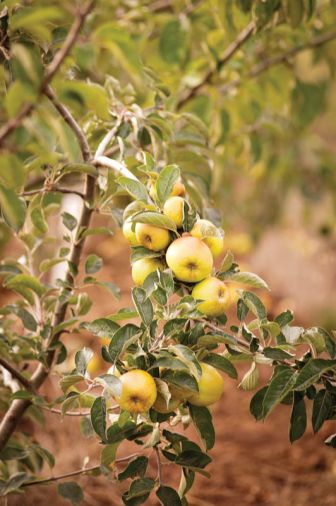
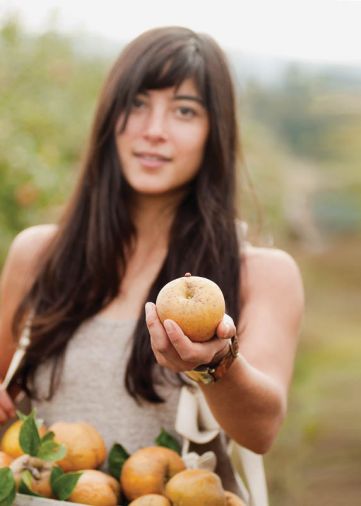
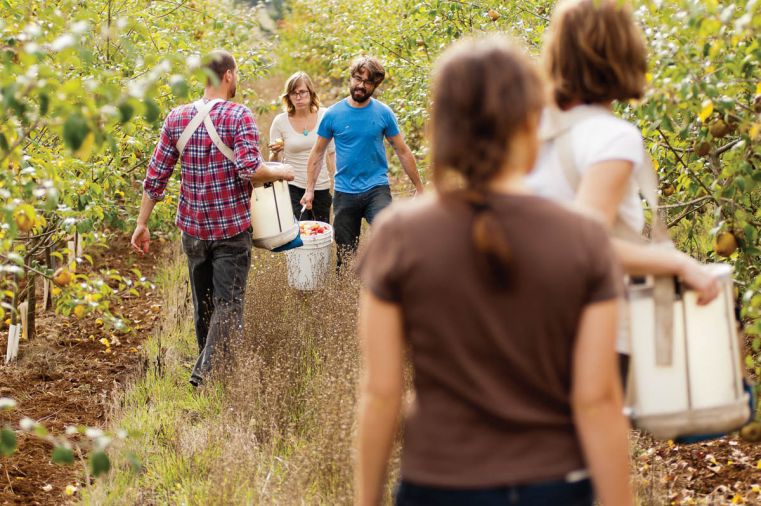
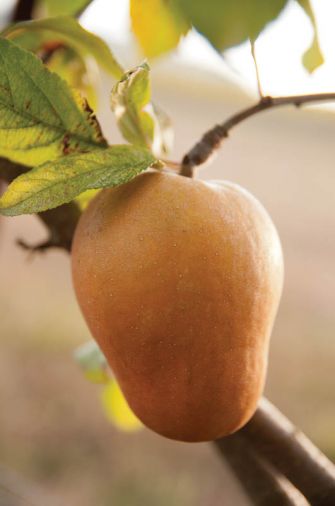
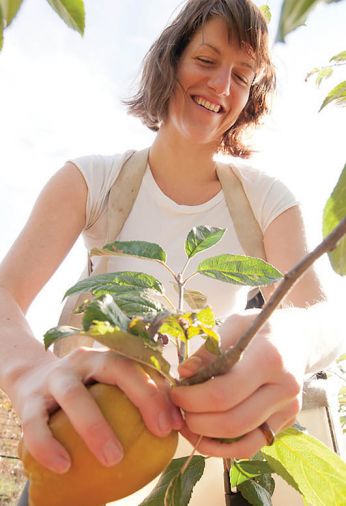
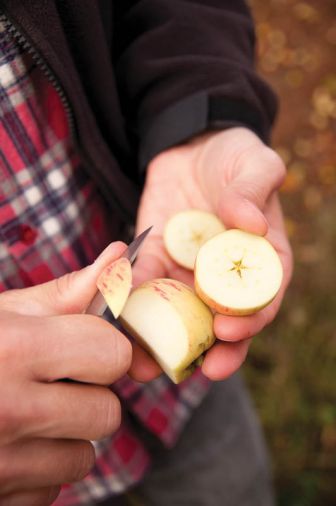
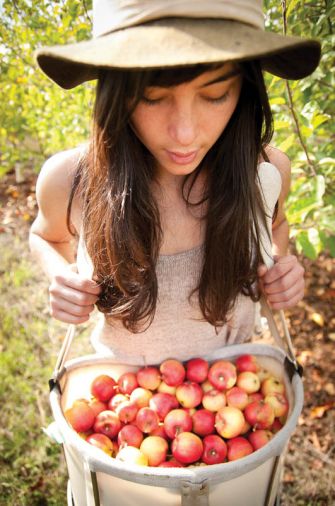

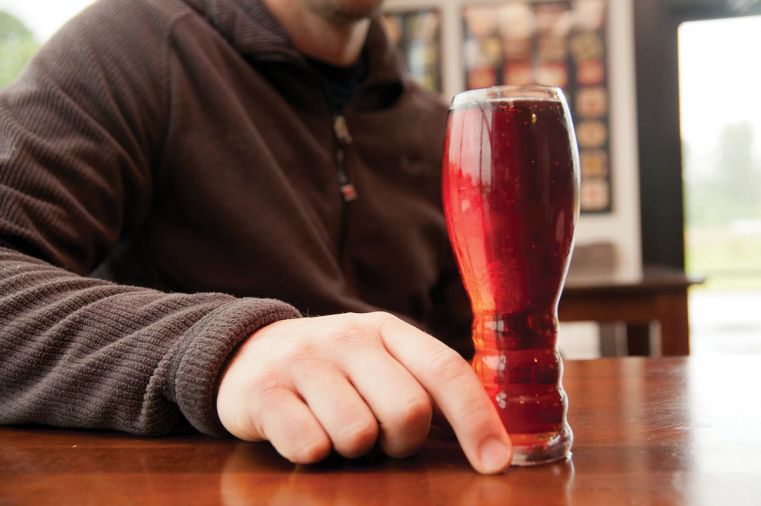
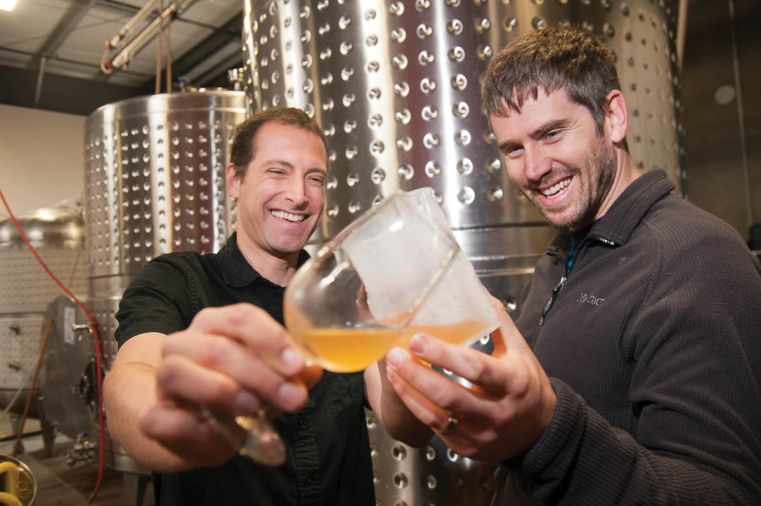
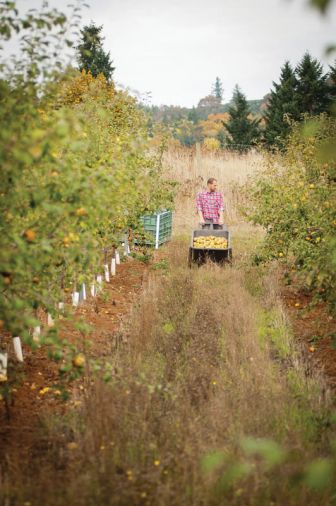
![Try these ciders: [1] ANTHEM CIDER Made from a blend of dessert apples, Anthem’s straight cider is an easy, everyday drinker with very light tannins, a sweet entry, and a tart, quenching finish. Price $5.99 [2] GOLDEN RUSSETT SINGLE VARIETAL This gold-colored cider is big and complex, with mild carbonation and a rich honey aroma. Sweet at first, Golden Russet Single Varietal finishes dry and nutty, almost like a very light sherry. Noticeable tannin structure makes this an easy swap for wine; it would be a great addition to the holiday table. Price $6.49 [3] WICKSON 2014 SINGLE VARIETAL CRAB APPLE Wickson 2014 is a single-varietal dry cider from a crab apple renowned for high levels of sugar and acidity. Its bracingly tart, lemon-like flavor begs to be paired with food, where it’s an exceptional match for rich or oily fare. Price $6.49 [4] ANTHEM HOPS Anthem’s straight cider, dry-hopped with Northwest-grown Cascades. Crisp, floral, and aromatic with just the slightest hint of hop bitterness, this cider is great on its own or paired with hearty fare like curry or burgers. Also available in a fresh hopped version in the fall. Price $5.99 Plan a visit to Wandering Aengus tasting room in Salem at 4050 Fairview Industrial Drive, where you can sample their standard lineup alongside one-offs and experimental batches that may never make it to bottles. Try these ciders: [1] ANTHEM CIDER Made from a blend of dessert apples, Anthem’s straight cider is an easy, everyday drinker with very light tannins, a sweet entry, and a tart, quenching finish. Price $5.99 [2] GOLDEN RUSSETT SINGLE VARIETAL This gold-colored cider is big and complex, with mild carbonation and a rich honey aroma. Sweet at first, Golden Russet Single Varietal finishes dry and nutty, almost like a very light sherry. Noticeable tannin structure makes this an easy swap for wine; it would be a great addition to the holiday table. Price $6.49 [3] WICKSON 2014 SINGLE VARIETAL CRAB APPLE Wickson 2014 is a single-varietal dry cider from a crab apple renowned for high levels of sugar and acidity. Its bracingly tart, lemon-like flavor begs to be paired with food, where it’s an exceptional match for rich or oily fare. Price $6.49 [4] ANTHEM HOPS Anthem’s straight cider, dry-hopped with Northwest-grown Cascades. Crisp, floral, and aromatic with just the slightest hint of hop bitterness, this cider is great on its own or paired with hearty fare like curry or burgers. Also available in a fresh hopped version in the fall. Price $5.99 Plan a visit to Wandering Aengus tasting room in Salem at 4050 Fairview Industrial Drive, where you can sample their standard lineup alongside one-offs and experimental batches that may never make it to bottles.](/pub/photo/thumb/PDX33_FOOD_Fruit-and-the-CiderMaker_Wandering-Aengus_Image-5a_fitbox_806x506.jpg)
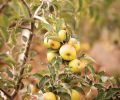


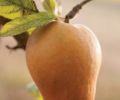

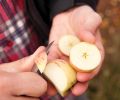



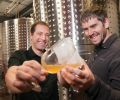
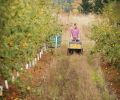
![Try these ciders: [1] ANTHEM CIDER Made from a blend of dessert apples, Anthem’s straight cider is an easy, everyday drinker with very light tannins, a sweet entry, and a tart, quenching finish. Price $5.99 [2] GOLDEN RUSSETT SINGLE VARIETAL This gold-colored cider is big and complex, with mild carbonation and a rich honey aroma. Sweet at first, Golden Russet Single Varietal finishes dry and nutty, almost like a very light sherry. Noticeable tannin structure makes this an easy swap for wine; it would be a great addition to the holiday table. Price $6.49 [3] WICKSON 2014 SINGLE VARIETAL CRAB APPLE Wickson 2014 is a single-varietal dry cider from a crab apple renowned for high levels of sugar and acidity. Its bracingly tart, lemon-like flavor begs to be paired with food, where it’s an exceptional match for rich or oily fare. Price $6.49 [4] ANTHEM HOPS Anthem’s straight cider, dry-hopped with Northwest-grown Cascades. Crisp, floral, and aromatic with just the slightest hint of hop bitterness, this cider is great on its own or paired with hearty fare like curry or burgers. Also available in a fresh hopped version in the fall. Price $5.99 Plan a visit to Wandering Aengus tasting room in Salem at 4050 Fairview Industrial Drive, where you can sample their standard lineup alongside one-offs and experimental batches that may never make it to bottles. Try these ciders: [1] ANTHEM CIDER Made from a blend of dessert apples, Anthem’s straight cider is an easy, everyday drinker with very light tannins, a sweet entry, and a tart, quenching finish. Price $5.99 [2] GOLDEN RUSSETT SINGLE VARIETAL This gold-colored cider is big and complex, with mild carbonation and a rich honey aroma. Sweet at first, Golden Russet Single Varietal finishes dry and nutty, almost like a very light sherry. Noticeable tannin structure makes this an easy swap for wine; it would be a great addition to the holiday table. Price $6.49 [3] WICKSON 2014 SINGLE VARIETAL CRAB APPLE Wickson 2014 is a single-varietal dry cider from a crab apple renowned for high levels of sugar and acidity. Its bracingly tart, lemon-like flavor begs to be paired with food, where it’s an exceptional match for rich or oily fare. Price $6.49 [4] ANTHEM HOPS Anthem’s straight cider, dry-hopped with Northwest-grown Cascades. Crisp, floral, and aromatic with just the slightest hint of hop bitterness, this cider is great on its own or paired with hearty fare like curry or burgers. Also available in a fresh hopped version in the fall. Price $5.99 Plan a visit to Wandering Aengus tasting room in Salem at 4050 Fairview Industrial Drive, where you can sample their standard lineup alongside one-offs and experimental batches that may never make it to bottles.](/pub/photo/thumb/PDX33_FOOD_Fruit-and-the-CiderMaker_Wandering-Aengus_Image-5a_cropto_120x100.jpg)
